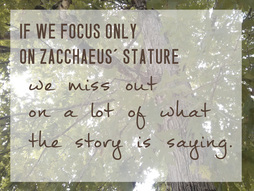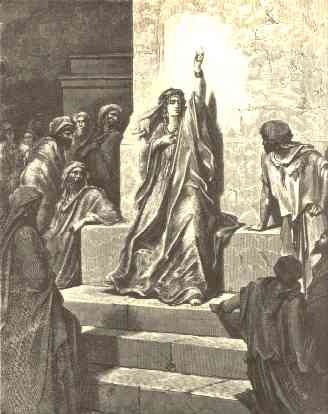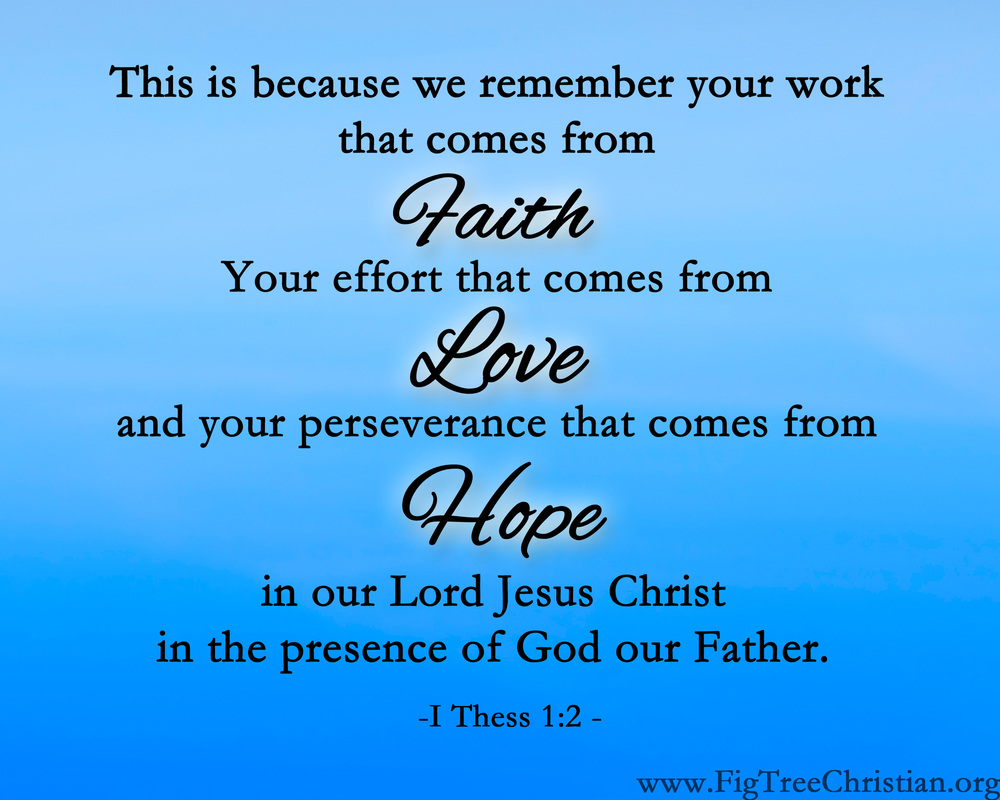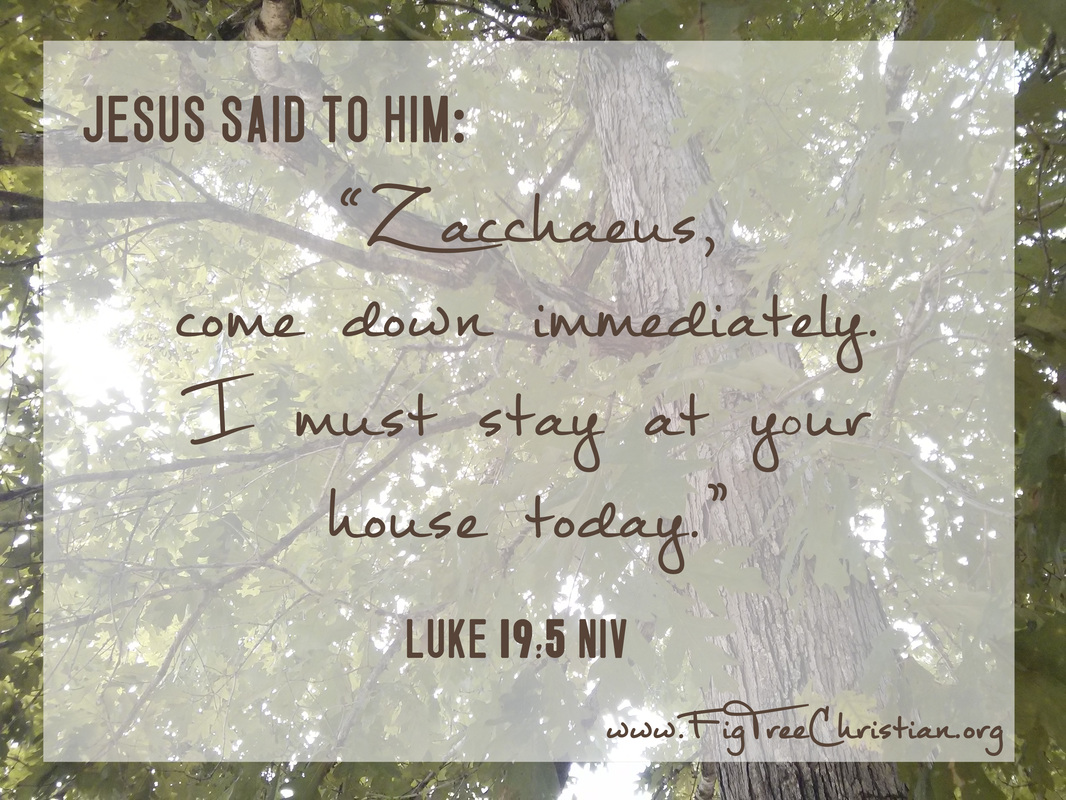|
The Story: (Kings 4-5) CEB 4:1 After Ehud had died, the Israelites again did things that the Lord saw as evil. 2 So theLord gave them over to King Jabin of Canaan, who reigned in Hazor. The commander of his army was Sisera, and he was stationed in Harosheth-ha-goiim. 3 The Israelites cried out to the Lord because Sisera had nine hundred iron chariots and had oppressed the Israelites cruelly for twenty years. 4 Now Deborah, a prophet, the wife of Lappidoth, was a leader of Israel at that time.5 She would sit under Deborah’s palm tree between Ramah and Bethel in the Ephraim highlands, and the Israelites would come to her to settle disputes. 6 She sent word to Barak, Abinoam’s son, from Kedesh in Naphtali and said to him, “Hasn’t the Lord, Israel’s God, issued you a command? ‘Go and assemble at Mount Tabor, taking ten thousand men from the people of Naphtali and Zebulun with you. 7 I’ll lure Sisera, the commander of Jabin’s army, to assemble with his chariots and troops against you at the Kishon River, and then I’ll help you overpower him.’” 8 Barak replied to her, “If you’ll go with me, I’ll go; but if not, I won’t go.” 9 Deborah answered, “I’ll definitely go with you. However, the path you’re taking won’t bring honor to you, because the Lord will hand over Sisera to a woman.” Then Deborah got up and went with Barak to Kedesh. 10 He summoned Zebulun and Naphtali to Kedesh, and ten thousand men marched out behind him. Deborah marched out with him too. Every once in awhile it is nice just to introduce a person/place/thing and explain the biblical context. The last time I did this was with Leviathan. This time, I want to talk about a biblical character, and one I was not introduced to until I was in my first year of seminary. Who was Deborah? I discovered her name means "bee" in Hebrew. As Melissa, which means "honeybee" in Greek, I think I found my biblical sister. Yet, who she really is goes deeper than a name. Deborah was a judge: Judges were the local leaders of Israel before there was a king. There were "major" and "minor" judges. The minor judges were there to settle local disputes. The major judges were like commanders, and they protected Israel from it's foe: Canaan. All of these judges, major or minor, were considered to be acting from God's judgement, not their own. It was important they remained pure to be an outlet to receive that divine message. (For example, Sampson's purity was in his hair, so he was powerless once it was cut.) Overall, there were 6 major judges, and 6 minor judges mentioned in the book of Judges. Deborah was female: Twelve judges are mentioned in the book of Judges. According to some, this particular book has been through at least two rewrites before it became canonized. I know this might make some uncomfortable. We like to think the bible went from the oral tradition directly to written. Historical theologians just don't believe this was the case. With that in mind, this is why it is so impressive Deborah made the cut. This was from a very patriarchal time. Women and children were considered property. It's a tremendously huge deal out of twelve known judges, one was female. I mentioned earlier how it wasn't until my first year of seminary I heard about Deborah. I was working as seminary intern at a DOC church in Tucker. I was helping the associate minister set up the quarterly Sunday School board. This church had written their own three year curriculum. In many ways it mimicked the Revised Common Lectionary. Where there were major biblical stories, they followed it. Where there were not, they filled it in with stories not in lectionary. Deborah was one of these stories. To me, leaving Deborah out seemed like a blatant ignoring of the biblical story. It's one of those moments where you see God picking a female to lead the people. It's a scandalous story for anyone who doesn't believe God calls females to Christian places of power. She is an example, and I was hurt to learn so late she existed. Deborah, in her power, gave the reward away: This little bit is really for us gals, but I'm sure the guys can gain something from it too. Want to know who stands in the churches way to hire a female minister more often than not? Other females. I've heard it from multiple congregations. The guys tell me, "I wanted to seriously consider a female minister, but the women on the search committee said we were not ready." The Ladies tell me, "We included females in the long list of candidates, but I don't really think the congregation is ready for a female minister yet. I'm ready, but they are not." I honestly have opinions why this happens in church, but no hard evidence. My strongest opinion is something I call a "senior complex." When I was a freshmen in highschool the seniors had all these privileges. They were allowed to go outside to eat. They had freedom to leave campus without special authorization. They were a little cruel to the freshmen and sophomores. They always told us, "Don't worry, you'll be like us someday. You'll get what we get." Well, someday came, but so did Columbine. Everything changed overnight, including the rules for seniors. We were upset because we had to suffer through upperclassmen treating us poorly, then we were not allowed to do the same when we became seniors. (Now, I personally decided to befriend the freshmen. I didn't want them to feel uncomfortable their first year in high school. Different story for another day.) I think there are two groups of women. The first group of women were told they did not have the power. They flexed their call in different ways: leading Christian Women's Fellowship, taking over welcoming committees, nudging their husbands to act on their behalf. Those kinds of things. It's not that they believe women can't be ministers, it's just they found a way to do ministry in the church without the minister title. Some of these women would have gone to seminary if they felt they had the opportunity. I can see how it can be painful to accept someone else's call, when these women were told their call was not biblical. From the other end, I fear we see female ministry in terms of scarcity instead of abundance. Realistically, if God is going to call 1,000 female ministers, there is going to be a place for all them in God's plan. Yet, it's like we get stuck in what we don't have, instead of what we've already been given. Instead of celebrating Deborah as the female judge, we see how only 1/12 of the judges were female. If we can't see God's abundance within the call, we can be left bitter and ungrateful. This is where we can take something from Deborah. When she tells Barak the battle will be won at the hands of a woman, it is natural to assume that means Deborah will be the one to win the battle. She is the commander, she will take the glory. This is not the case. The glory went to Jael, who defeated Sisera by driving a tent peg into his temple. (Colorful, I know.) Then, when the truth of his demise is learned, it is Deborah who sings of the victory! Deborah was most definitely living a time where praising a female was a scarce commodity. It's important to see Deborah was not a judge to glorify herself, but to glorify God. In knowing her purpose, she was able to sing praises to another.
Matthew 22:33-40 CEB 33 Now when the crowd heard this, they were astonished at his teaching. 34 When the Pharisees heard that Jesus had left the Sadducees speechless, they met together. 35 One of them, a legal expert, tested him. 36 “Teacher, what is the greatest commandment in the Law?” 37 He replied, “You must love the Lord your God with all your heart, with all your being, and with all your mind. 38 This is the first and greatest commandment. 39 And the second is like it: You must love your neighbor as you love yourself.40 All the Law and the Prophets depend on these two commands.” A reflection for you: I like baseball. I'm really the only one in my house that does. As a Kansas City native, I am watching the World Series this year. True, the Giants destroyed the Royals perfect post-season record in game one, but the Royals destroyed their own dry spell just making it to the World Series. Plus, they did come back to win game two last night. I can't complain. In baseball, I like the "three strikes and you're out" rule. It's simple; easy to understand. If only the Pharisees had baseball back in biblical times. Before verse 33 in our scripture today, the Pharisees had struck out three times. They wanted to trick Jesus. They wanted to make him fall for a trap that would get him killed. They should have considered themselves out, and given up. No, instead, they try one last time. Maybe they just fouled that third hit, so they had one more go at it. There question was deceptively sinister. "What is the greatest commandment?" It was sinister because there really wasn't a good answer. Choosing one commandment over the other would negate the other commandments. Like he had just done, he could have given an easy out: "They are all equally important. No commandment is greater than another." Instead, I believe throws the Pharisees a pitch straight down the middle. Instead he says, "You must love the Lord your God with all your heart, with all your being, and with all your mind. This is the first and greatest commandment. And the second is like: You must love your neighbor as you love yourself." This actually is all ten commandments. The first five commandments are related to worship of God, and the second five are related to how we treat one another. In giving the teachers of the law the answer in this way, he gives them ammunition. It wasn't the ammunition they wanted, a way to destroy Jesus. It was the ammunition they needed, a way to destroy their own destructive behavior. The answer is love. The greatest commandment is love. Love God. Love self. Love others. Let go of these dark and unhealthy attitudes and love. Now a personal reflection: Normally, this is the point where I would pull out my journal and write. You would be surprised what I journal out instead of sharing. (It's a healthy process for anyone who openly writes online. So many opinions are really better left between the writer and God.) Today is different, and it is different because it needs to exist on something other than a journal page. I'm going to participate in the NaNoWriMo this year. (National November Writing Month) Normally, I wouldn't see a need to openly announce this, but this year I've decided to write out my experience at my ill fated call three years ago. Depending how it turns out, it might just be added to the stacks of written text, or I might seek publication. It really matters how the process goes. As a minister, I would only be able to publish if I could maintain a certain confidentiality between myself and the experience. If I can do that, I want to share my road to healing with others. After meditating on the text this week, I truly believe Jesus was attempting to help the Pharisees. He was helping the very people who would get him crucified using the most disarming weapon we have: love. Therefore, before I can write a single word for NaNoWriMo, there is something I must write publically first. It's something I have journaled and prayed. Now it needs to be openly said: - - - To my previous call, I've forgiven you. I forgave you when I didn't believe it. I forgave you in the car on the way to a retreat. I forgave you in my darkest nights when nothing was there but God and myself. I do not see you as spiteful or ill-intentioned. I see you as broken. It was in your brokenness you broke me. I cannot be angry or vengeful in that. I can only be sad you haven't found healing. I am also sorry. I'm sorry it didn't work out. I'm sorry the type of minister I am was not the right fit for the type of church you are. I'm sorry it ended with people leaving the church. I personally talked with some of the families and suggested they stay at the church. They couldn't do it. I know they are ultimately where God wants them to be, so I'm happy for them. As I have found peace and healing over the past three years, I hope you find the same. Rev. Melissa Fain
Matthew 22:15-22 CEB 15Then the Pharisees met together to find a way to trap Jesus in his words. 16 They sent their disciples, along with the supporters of Herod, to him. “Teacher,” they said, “we know that you are genuine and that you teach God’s way as it really is. We know that you are not swayed by people’s opinions, because you don’t show favoritism. 17 So tell us what you think: Does the Law allow people to pay taxes to Caesar or not?” 18 Knowing their evil motives, Jesus replied, “Why do you test me, you hypocrites? 19 Show me the coin used to pay the tax.” And they brought him a denarion. 20 “Whose image and inscription is this?” he asked. 21 “Caesar’s,” they replied. Then he said, “Give to Caesar what belongs to Caesar and to God what belongs to God.” 22 When they heard this they were astonished, and they departed. This is the sermon given to Marietta First Christian Church on 10/19/14 Imagine with me a gigantic cardboard box, being held up with a long stick. Coming from the stick is a rope. Where does the rope lead? The rope goes from the stick to the brush where the disciples of the Pharisees and supporters of Herod or quietly giggling, “Tee Hee Hee!” It’s a trap! To Jesus, it’s a clear trap. Wiley Coyote, using Acme products, could lay a less obvious trap! Let me explain just how obvious this whole thing is. First of all, you have the followers of Herod who really don’t care what the Law allows, just as long as you pay the tax. By this time, Romans had ceased most taxes to their own citizens because they could tax occupied countries, like Israel, instead. A few of the rulers would try to be as generous as possible with the people, trying to keep the taxes down. The Herodians were not one of these groups. Herod and his family in general, kinda had an ego complex. For goodness sake, he named at least three children after himself. Most people would stop at one, not Herod. He often played both sides of the field. On one side he rebuilt the temple, but on the other he put at big Roman Eagle at the entrance. Jesus would have known what the followers of Herod wanted to hear, and that they didn’t really care what the law had to say about it. If you think the Herodians played both sides, well so did the Pharisees. Privately they loathed the temple tax. They weren’t too happy about that eagle either. They didn’t think it was biblical in the least. However, if one were to stand up against the tax it would label them a traitor to the Roman government and they most likely would be executed. They were hypocrites because they would rather allow the widow to put her food money into the pot and starve than stand up for her and face the consequences. Jesus would have known what the Pharisees wanted to hear, and the repercussions for saying it.  The trap was as simple as a box being held up with a stick. If Jesus called the tax unbiblical it would mean almost certain death. If Jesus suggested we should pay our taxes it would anger his supporters, possibly putting them into frenzy. They would possibly kill him for being a false prophet. What’s the son of God to do? Surely not walk into an obvious trap? No. As he had done two times before this moment, he disarms the trap laid out by the Pharisees. “Give to Caesar what is Caesar’s, and Give to God what is God’s.” BOOM! Mic drop; Jesus out. He leaves the Pharisee’s speechless, scratching their heads, and wondering what just happened. Now this is the moment many ministers talk about taxes and whether the government does or does not fit into the church. Many more ministers use this scripture to launch a stewardship campaign to urge congregants to give more. You’re not going to get that today. Today, I want to talk about the Herodians and the Pharisees. The question of whether one pays their taxes wasn’t posed to get an honest answer. I repeat my initial statement: It was a trap! When we look at scripture it’s always important to consider two things:
God acts from what we mean, not what we say. The Pharisees and Herodians were saying they wanted hear what Jesus thought about taxes. They were meaning to get Jesus killed. These are two very different things, and Jesus acted into their meaning rather than what they were saying. If Jesus was acting in what they were saying I imagine he would have pulled them aside and engaged in a dialogue. They might have explored the subject together over a meal. (That was kinda Jesus’ thing, talk over a meal.) Instead, he gives a one sentence response and moves on. That’s where it is. That’s the point. When we seek to engage God in the world and in prayer, it really matters whether we are authentic with our words, because God is going to know the truth in our heart. I remember working through the Parable of the Pharisee and the Tax Collector from Luke 18. If you remember, they were both praying. From first glance you would think the Pharisee was being arrogant and the tax collector was being humble. In researching what the Pharisee was doing, I learned the he was going through a ritual to show humility. They were really doing the same thing, even though it looked different. It was their meaning behind their action that differentiated them. The tax collector was truly acting in humility, and the Pharisee was arrogant.  Where does that leave us? Y’all are in the process to find the next step in your spiritual journey. If you are finding that journey, it's going to help you rediscover what FCC Marietta is, and can get you on track to find a new senior minister, you will met with an important objective. It will not be good enough to say you want to go through the process. You must mean what you are saying as well. This is where many church revitalizations get derailed. They say one thing and mean another. God will not help you find your future, unless you are bold enough to act like you want to get it. That’s where the celebration comes in. True, if we don’t mean what we say, we are likely to just get disarmed and nothing changes. But, if we mean what we say, we could get something real and substantial. Living water, if you are the woman at the well. Relationship, if you are Zacchaeus. Baptism, if you are the Ethiopian eunuch. What do you think God could give you if you ask for revitalization and mean it? There’s only one way to find out.
1 Thessalonians 1:1-10 CEB From Paul, Silvanus, and Timothy. To the Thessalonians’ church that is in God the Father and the Lord Jesus Christ. Grace and peace to all of you. We always thank God for all of you when we mention you constantly in our prayers. This is because we remember your work that comes from faith, your effort that comes from love, and your perseverance that comes from hope in our Lord Jesus Christ in the presence of our God and Father. Brothers and sisters, you are loved by God, and we know that he has chosen you. We know this because our good news didn’t come to you just in speech but also with power and the Holy Spirit and with deep conviction. You know as well as we do what kind of people we were when we were with you, which was for your sake. You became imitators of us and of the Lord when you accepted the message that came from the Holy Spirit with joy in spite of great suffering. As a result you became an example to all the believers in Macedonia and Achaia. The message about the Lord rang out from you, not only in Macedonia and Achaia but in every place. The news about your faithfulness to God has spread so that we don’t even need to mention it. People tell us about what sort of welcome we had from you and how you turned to God from idols. As a result, you are serving the living and true God, and you are waiting for his Son from heaven. His Son is Jesus, who is the one he raised from the dead and who is the one who will rescue us from the coming wrath. Of all the letters written by Paul, no two letters are written exactly the same, because no two communities were exactly alike. This becomes a good thing for us because we gain from the diverse insights Paul shares with multiple communities. As Paul gets the chance to explain multiple theological issues, we are the winners. Now, a little bit about Thessalonica. If you wanted to visit this city today, well you are in luck! It is the only Pauline city still in existence and going by its original name! However, if you are an archeologist you are really out of luck. Because a bustling city actually exists on top of the former ancient city, it is near to impossible to find ancient ruins of the original Thessalonica. It means we cannot know certain aspects of how this city lived when Paul wrote 1 and 2 Thessalonians. We cannot base our knowledge on pot shards or ancient murals, because they just don't exist anymore. There are a few things we can know based on writings at the time. First, it was the largest city in Macedonia. They had 200,000 residents at the time of the letters. We know Paul frequented the area because he also preached to another Macedonian city: Philippi. Now, here is the usual order of things when Paul visits a city:
This is not the case for Thessalonica. Paul comes and shares the word which is embraced by the people. Just like every other place he would visit, all was going well when something happened. Apparently there was a group in Thessalonica that did not like Paul's message. They could have sent him death threats, they could have told him he would be jailed. We are not sure. We are sure whatever happened was enough to get Paul to leave quickly without saying goodbye. Now, the people who had embraced Paul's message in Thessalonica were confused. Had they done something wrong? Why did Paul leave so quickly? They decided to find out and sent messengers to find Paul and ask what they did wrong. (In many ways this is the perfect setup for a comedic movie, right? Comedic movies always start out where everything is absolutely perfect and then some unforeseen event happens which throw all those involved into hijinks. If this wasn't a life or death matter, it could be humorous.) When word finally reaches Paul he is astounded. First of all, he doesn't think they have done anything wrong in the least. They embraced the message and things were going well. So instead of chastising the people, part of the reason he drafts 1 Thessalonians is to clear the air and explain what really happened. Secondly, they ended up finding him in Corinth. You might remember Corinth, it is the place I directly related to Las Vegas: the crazy place where anything goes. I bet he was thinking very fondly of Thessalonica while trying to work with the Corinthians. You know, it might have been fortuitous the Thessalonians found Paul in Corinth. Something ended up coming out of 1 Thessalonians we often attribute to 1 Corinthians. Maybe Corinth inspired his writing 1 Thessalonians or maybe Thessalonica was in his memory while drafting 1 Corinthians, we cannot know. But, for the first time, before 1 Corinthians was ever penned, Paul tells the Thessalonians about faith, hope, and love. Now, to be clear, in 1 Thessalonians the concept is slightly more vague than it became in 1 Corinthians 13, but it is there. Just to remind you, here it is again as Paul wrote it: We always give thanks to God for all of you and mention you in our prayers, constantly remembering before our God and Father your work of faith and labor of love and steadfastness of hope in our Lord Jesus Christ. Let’s delve into that, shall we? I submit this early version of faith, hope, and love can be viewed in a temporal, or time related way. Faith, hope and love can become a way we can be Christians who live for the past, the future, and the present. More importantly than ever it is something we need to be aware of. Work of faith: eventually every past event will need to be taken on faith. History truly becomes history when there are no physical people to vouch for the actions written on paper, or to explain the relics left behind. At that point we must have faith in what is being taught to us whether it is the bible, the family tree, or U.S. History. In many ways what we do in life is dictated by what we learn from our past. Science is pushed forward by the theories and works of previous scientists. We can keep from repeating the mistakes of our ancestors or learn from their accomplishments by recalling their story. However, we cannot simply live in faith. As Christians, simply having faith in God through recollection will only keep us in the past. We need to look towards the future. Steadfastness of hope: if we cannot hope for something than what do we have to live for? Hope is a positive outlook towards what will be. We have hope in Jesus Christ as Lord and Savior and what that will mean when we finally pass on. We live in that anticipation and our actions can lead us towards that future goal. Hoping for the future, in general, can lead to innovation and a better life for our children's children. But, by itself it is empty because reason to hope comes from faith in what has been. It makes me think of Camping and his various apocalyptic predictions. He is that guy who made an apocalyptic prediction back in May based on calculations using the bible. It didn't happen in the 90's and it didn't happen this past May. It will not happen this month as he had changed the prediction to. Living only in hope, whether that hope is for an end times in our lifetime or a utopia on earth, without history (aka faith) to back it than it is not a worthwhile endeavor. So what ties these two things together? Labor of love: Bringing faith and hope, past and future, together is work. Labor is a beautiful word to describe it. In childbirth the parents are the past, the child is the future and labor is what brings it all to fruition. Love is something that happens now. Love lives in the present. Love, more than faith and hope, takes work because it brings about the finished product. Our faith and hope in Christ are only the tools to live out love. I believe this idea can be expanded by looking at the concluding verse of 1 Cor 13. After all, Corinth could have had an impact on what Paul said to Thessalonicia or visa versa. “Faith, hope, and love abide these three, but the greatest of these is love.” Have faith in what you learn, study and pray. Have hope in what is yet to come. And, go out, with faith and hope to live the gospel in love.
Exodus 32:1-14 CEB The people saw that Moses was taking a long time to come down from the mountain. They gathered around Aaron and said to him, “Come on! Make us gods who can lead us. As for this man Moses who brought us up out of the land of Egypt, we don’t have a clue what has happened to him.” Aaron said to them, “All right, take out the gold rings from the ears of your wives, your sons, and your daughters, and bring them to me.” So all the people took out the gold rings from their ears and brought them to Aaron. He collected them and tied them up in a cloth. Then he made a metal image of a bull calf, and the people declared, “These are your gods, Israel, who brought you up out of the land of Egypt!” When Aaron saw this, he built an altar in front of the calf. Then Aaron announced, “Tomorrow will be a festival to the Lord!” They got up early the next day and offered up entirely burned offerings and brought well-being sacrifices. The people sat down to eat and drink and then got up to celebrate. The Lord spoke to Moses: “Hurry up and go down! Your people, whom you brought up out of the land of Egypt, are ruining everything! They’ve already abandoned the path that I commanded. They have made a metal bull calf for themselves. They’ve bowed down to it and offered sacrifices to it and declared, ‘These are your gods, Israel, who brought you up out of the land of Egypt!’” The Lord said to Moses, “I’ve been watching these people, and I’ve seen how stubborn they are. Now leave me alone! Let my fury burn and devour them. Then I’ll make a great nation out of you.” But Moses pleaded with the Lord his God, “Lord, why does your fury burn against your own people, whom you brought out of the land of Egypt with great power and amazing force? Why should the Egyptians say, ‘He had an evil plan to take the people out and kill them in the mountains and so wipe them off the earth’? Calm down your fierce anger. Change your mind about doing terrible things to your own people. Remember Abraham, Isaac, and Israel, your servants, whom you yourself promised, ‘I’ll make your descendants as many as the stars in the sky. And I’ve promised to give your descendants this whole land to possess for all time.’” Then the Lord changed his mind about the terrible things he said he would do to his people. This post is for all those congregants wanting to revitalize their church. With so many, "Why is the church dying?" posts, let me explain why the church is dying in relation to revitalization.
Commandment 1: "I am the Lord your God, who brought you out of the land of Egypt, out of the house of slavery," Commandment 2: "you shall have no other gods before me." Commandment 3: "You shall not make for yourself an idol, whether in the form of anything that is in heaven above, or that is on the earth beneath, or that is in the water under the earth. You shall not bow down to them or worship them." The Israelites make an idol, use nearly the same line from commandment one, and follow it up with putting another god before their eyes. (Now, there is question whether they were attempting to force God down by creating an idol, or giving their worship to another idol. The issue is still wrong.) In their impatience, the people took a seed of truth from the commandments and used it to follow the wrong path. Those who shake their heads, wondering why transformation didn't take, usually are dealing with a situation where impatience or fear take root and the people begin to craft their own plan. Not dealing with their real problem, they paint a the false reality of transformation over their bad habits and choices. Church revitalization requires letting go of the past and working hard over time. Finally, it requires faith that God will be there. It's really kinda easy to understand. Unfortunately, it's not so easy to follow. I would love to hear from you. There are several ways to communicate and connect:
Join Fig Tree's Communication Board Join Fig Tree's Subreddit Follow our Pinterest page Like us on Facebook Follow us on Twitter I am a nomad from a family of nomads. I have lived all over the world and across America. In the words of the great Johnny Cash, “I’ve been everywhere, man!” For the last three years, I have been blessed to call Ames, Iowa my home, where I am the minister at Westside Church of Christ. I also joyfully bear the title of husband to my wife and, as of this July, father to my infant son. If you would like to contact me, you can send an email to [email protected]. When I was a boy, every time my class had a group picture taken, I was always in the front row. I was something of a short little kid and had to be in front so I wouldn’t be blocked out. I would never get to stand on the top bleachers with the tall kids. Though I now stand at an imposing five feet and nine inches, I have always felt like I could relate with that one person in the Bible that perhaps could be considered the patron saint of the vertically challenged: Zacchaeus. We read his story in Luke 19: Jesus entered Jericho and was passing through. A man was there by the name of Zacchaeus; he was a chief tax collector and was wealthy. He wanted to see who Jesus was, but because he was short he could not see over the crowd. So he ran ahead and climbed a sycamore-fig tree to see him, since Jesus was coming that way.  There’s no denying that Zacchaeus was short—his shortness is big part of the story! However, there’s more to him than that and if we simply associate Zacchaeus with his physical stature, then we miss out on a lot of what this story is saying. Zacchaeus may have been short and I’m sure people may have even made fun of him for it, but definitely not to his face because he was a man of great importance. He was the chief tax collector and as a result, he was quite wealthy. He would have also been in a position of power and recognition, and though being a Jew, he was working alongside the Roman officials. Still, while Zacchaeus had money and power, he probably didn’t win a lot of popularity contests. Even today, people aren’t huge fans of the tax man, but imagine if the person collecting your taxes was giving them to a government that had taken over your homeland and you had no choice but to give them that small chunk of your paycheck every time they asked. Many Jews would have seen him as a traitor to his own people. It didn’t help their reputation that many tax collectors were corrupt, often “skimming a little of the top” and fattening their own wallets. There’s nothing to indicate that Zacchaeus himself did that, but I’m sure that the people there at least assumed that he did.  But despite this, Zacchaeus, just like everyone else, is curious about this Jesus guy. Everyone had heard of Jesus at this point. He was a rabbi with some extraordinary teachings. Unlike the other teachers, he spoke with a voice of authority. He had even performed several miracles, healing the sick and casting out demons in the name of God. Everyone had heard of Jesus, which explains why such a large crowd gathering around him when he entered the city of Jericho. Hundreds of people from all over the city and the surrounding towns were drawn to see what was happening. Zacchaeus was short and he could not see over the crowd. Not only was the crowd blocking him, but it was sure that the Pharisees would have kept him away. To them, he was a sinner and was to be cut off from society. If it weren’t for the Romans in charge, the Pharisees would likely have had their way, too. They would have seen Zacchaeus as an embarrassment and wanted to keep him away from this well-known visiting rabbi. Then he sees the sycamore fig tree. It would be a big risk, but Zacchaeus doesn’t have much time to think. The crowds were no doubts going to grow larger and Jesus would be going to someone’s house to eat dinner, soon. And so he climbed. Leaving his pride and dignity on the ground, he shimmied his short legs up that tree. With each branch, his view expanded more and more. But it was then that he noticed something: Jesus was heading right towards him! A voice called out, “Zacchaeus, get down out of that tree.” Zacchaeus looks down and cannot believe his eyes. It was Jesus! He was standing right there below him. Somehow, Jesus knew him by name…and he wanted him to get down out of there. In fact, Jesus continued on, “Zacchaeus, can I stay your house today?”  Zacchaeus, in this moment, is completely overwhelmed. For years, he had been shunned because of his job. He was used to it, by now. It came with the territory. And yes, it came with it also great wealth, but I’m sure that Zacchaeus often found himself lonely and without friends. Jesus’ gestures moved him powerfully, and Zacchaeus’ response reflects that. He gives over half his possessions to the poor, and even says that if at some point he had ever cheated anyone out of their money, he would give them four times that amount back. His life was going to be turned around and he was going to repent of his sins. It was going to be different now…all because Jesus had called his name. This is the beautiful imagery of this story: Jesus seeks out the lost. He was on a mission that day, and whether or not Zacchaeus had climbed that tree, Jesus would have found him. He was looking for him. But Zacchaeus did climb that tree, and in doing so, he demonstrated great humility on his part. He wanted to see Jesus and was willing to drop his pride and climb, even if it only meant a quick glimpse. In the end, his reward was much greater than what he ever could have expected. There were a lot of reasons why Jesus should have picked someone else, and there were plenty of people in the crowd who would have loved to point these reasons out. But Jesus didn’t care. It didn’t matter what Zacchaeus had done or who he was or who liked or who didn’t like him. All Jesus saw was a child of God who needed helping finding his way. That’s the beauty of this story, because this is our story, too. We are all like Zacchaeus, striving to see God over the crowd, but struggling with our own limitations. We, too, have our sins and our reasons why we don’t deserve to see him face to face. But when we seek out Jesus, we just might hear that voice calling out our names. We may look down from our tree and see the face of Jesus, asking us if he can eat at our house tonight. We may just find that it turns out that while we were looking for Jesus, Jesus was looking for us. This is the gospel, the good news that we are spreading: no matter who you are or what you’ve done, there is room in His kingdom for you.
|
Categories
All
Archives
October 2023
|














 RSS Feed
RSS Feed